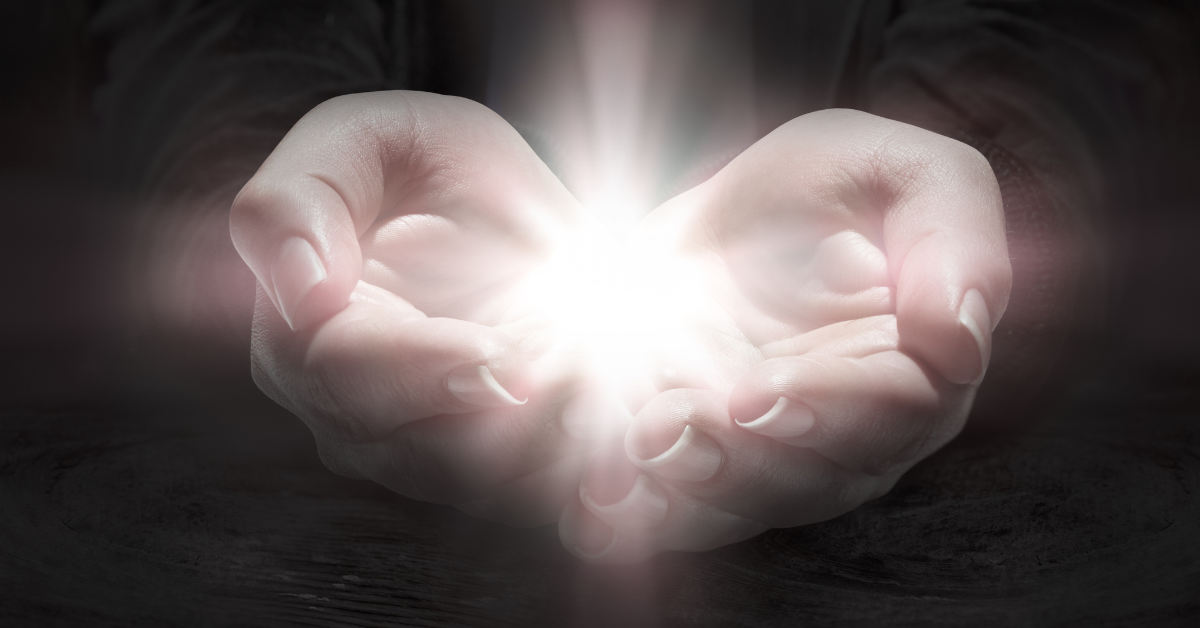Think of two or three people who you absolutely love to be around.
I’m talking about the people you yearn to be around no matter the time of day. The people who share in your joys and sorrows. The people who make you feel heard, inspired and invigorated.
Got ‘em?
These people are the energy givers in your life. And let me tell you – their presence has a profound impact on your own well-being.
Energy givers are the people who lift others up. They have a remarkable ability to encourage and energize those around them. They seem to radiate positivity and enthusiasm, making every encounter with them refreshing and invigorating.
Energy takers, on the other hand, are those who bring others down. These are individuals whose presence can feel draining, leaving those around them feeling depleted and weary.
I think it’s safe to say the company of an energy giver is far better than an energy taker.
I think it’s also safe to say that being an energy giver is far better than an energy taker.
In our daily walk with Jesus, we are called to be sources of light and love to those around us. So, let’s be honest with ourselves here, how are we doing? Are we living as energy givers?
We’re about to look at 10 markers that you’ll likely see within the lives of givers versus takers. Understanding the characteristics that distinguish the two can help us cultivate more fulfilling relationships and safeguard our emotional well-being.
Before getting into it, I want to emphasize two points:
- More than likely you will have some attributes of an energy giver and some of an energy taker. That’s normal! Becoming our best selves is an endless process – we never reach the finish line. We do, however, have the daily choice to take one step closer to it.
- Energy givers are by no means perfect! They are human, with their own vulnerabilities and struggles. Just as they extend a helping hand to others, they too can and should seek support when needed. Asking for help is not a sign of weakness but a testament to their authenticity and strength, ensuring they can continue to shine brightly while also replenishing their own reserves. Embracing this balance allows energy givers to maintain their well-being, enabling them to sustain their positive influence in the world.
1.) Present vs. Past
Energy givers have a natural inclination towards embracing the present moment. They focus their attention on appreciating the beauty and opportunities of each moment. I think of my friend Lexie here, a giver who is known to shout, “WOW, LOOK AT THAT” at just about every sight on our walks. Givers are mindful of their surroundings, savoring life’s simple pleasures and finding joy in the present experience. In contrast, energy takers tend to replay past mistakes again and again and again. This can weigh heavily on our physical, mental, and spiritual health. It can expose itself through mental conditions, health issues and an inability to find peace.
2.) Consistent vs. Inconsistent Sleep
Energy givers and energy takers often exhibit distinct patterns in their sleep habits. Givers understand the importance of maintaining a regular sleep schedule to regulate their body’s internal clock (known as the circadian rhythm) which governs essential functions such as hormone production and metabolism. They may also engage in activities such as journaling, mindfulness meditation or progressive muscle relaxation to calm the mind and body before bedtime. Energy takers frequently exhibit inconsistent sleep patterns due to a number of factors – from excessive stress to unhealthy lifestyle choices. A lack of proper sleep impacts mood and behavior and depletes energy levels and enthusiasm, making social activities less enjoyable or engaging.
3.) Nutritious vs. Junk Food
The dietary choices of energy givers reflect their commitment to self-care and vitality, while energy takers may inadvertently sabotage their energy levels and health by consuming foods that lack nutritional value and contribute to feelings of fatigue and sluggishness. For example, you’ll likely find that energy givers maintain a balanced diet rich in fruits, vegetables, lean proteins, and whole grains, while energy takers gravitate more towards fast food, processed snacks high in sugar, unhealthy fats, and artificial additives.
4.) Organized vs. Disorganized Environment
By maintaining a sense of order and structure in their environment, energy givers enhance their productivity and reduce feelings of stress. They may personalize their spaces with meaningful objects, artwork, or photographs that evoke positive emotions and inspire them to pursue their passions and goals. They also may establish designated workspaces or quiet areas free from distractions where they can focus on tasks or engage in self-care activities. This is not the case for energy takers – they often exhibit disorganized environments characterized by clutter, chaos, and inefficiency. They may find it hard to stay organized and may not see the importance of a clean space compared to other activities.
5.) Time Outside vs. Time Inside
Energy givers prioritize spending time outdoors and connecting with nature, engaging in activities to recharge. They enjoy physical recreation and practice digital detox. This is very different from energy takers. They may spend excessive time indoors and on their phones, relying on digital devices for entertainment and connection, often at the expense of meaningful interactions and experiences in the real world.
6.) Positivity vs. Negativity
Givers see the potential for good in every situation and exude positivity and optimism. They uplift those around them with affirmations, compliments, and words of support. Takers, though, are more inclined towards negativity and pessimism, focusing on limitations and obstacles. By speaking negatively or critically, they can quickly dampen the spirits of those around them.
7.) Active vs. Sedentary Lifestyle
Givers seek opportunities to move their bodies. Their active lifestyle not only enhances their physical health but also boosts their mood and energy levels. Takers tend to lack interest in physical activity, preferring sedentary pursuits like watching TV, browsing social media or playing video games. This sedentary behavior can contribute to various health issues, including weight gain, poor cardiovascular health and decreased energy levels.
8.) Gratitude vs. Resentment
Givers maintain an attitude of appreciation, expressing gratitude for both the big and small moments. They recognize the power of gratitude in enhancing their overall well-being and relationships and often incorporate gratitude practices such as daily reflections into their routines. Takers have a tendency to sit in resentment and discontent. They may struggle to find joy in their circumstances by fixating on what they lack rather than appreciating what they have, ultimately hindering their ability to experience true fulfillment and happiness.
9.) Strong vs. Weak Community/Relationships
Energy givers prioritize cultivating strong relationships and active community involvement, recognizing the profound impact of social connections on their well-being and sense of belonging. They invest time and effort in nurturing meaningful relationships with friends, family, and community members. They’re likely to actively participate in community activities, volunteer work, and social gatherings. Takers may have weak relationships and limited community involvement, often due to a lack of interest, motivation, or willingness to invest in meaningful connections. They may prioritize their own needs and desires over the well-being of others, leading to feelings of isolation and disconnection from their communities.
10.) Acknowledge God’s Presence vs. Ignoring God
Givers recognize God’s hand in both the joys and challenges they encounter. They approach life with a sense of reverence and awe, seeking to align their thoughts, words, and actions with His will. Energy takers may ignore God due to ignorance, outright denial, or claiming that He does not play a significant role in their lives. Their focus is likely consumed by worldly pursuits and materialism leading them to neglect the spiritual dimension of life and the profound sense of purpose and fulfillment that comes from walking in relationship with their Creator.
As followers of Jesus, the call to be energy givers resonates deeply with the core teachings of our faith. Jesus himself embodied the ultimate example of selflessness, compassion, and love, constantly pouring out His energy and resources to uplift and restore those around Him. In a world plagued by negativity, division, and despair, our commitment to being energy givers becomes a powerful testimony to the transformative power of the love and truth of Jesus.
Consider the ripple effect of your presence: Do you bring light and positivity, or do you inadvertently drain the energy from those around you? How can you intentionally choose to be an energy giver?
 Abbey holds a degree in journalism from Indiana University. Her favorite topics to cover are spiritual development, nutrition, and the importance of community and connection. Currently, she and her husband live in Michigan where she works in active ministry. In her free time you’ll likely find her nose deep in a book, leading group fitness classes, or experimenting in the kitchen.
Abbey holds a degree in journalism from Indiana University. Her favorite topics to cover are spiritual development, nutrition, and the importance of community and connection. Currently, she and her husband live in Michigan where she works in active ministry. In her free time you’ll likely find her nose deep in a book, leading group fitness classes, or experimenting in the kitchen.











